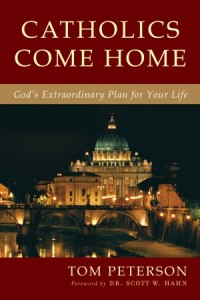God, the Dramatist
User's Guide to Sunday, Dec. 22.

Sunday, Dec. 22, is the Fourth Sunday of Advent (Year A, Cycle II). Dec. 25 is Christmas, the Solemnity of the Nativity of the Lord, a holy day of obligation.
Readings
Isaiah 7:10-14, Psalms 24:1-6, Romans 1:1-7, Matthew 1:18-24
Our Take
If there’s anything the Advent and Christmas seasons teach us, it’s that God loves a great story.
Consider the drama of salvation history: There is an "inciting incident" with the snake in the garden. There are great special effects, with the flood and the burning bush. There is romance, betrayal, plot twists and ultimate resolution.
Applying some simple principles to the time from Advent to Christmas demonstrates how God the dramatist likes to operate. Here are a few examples:
Create the right expectations. When a new movie or television show is coming, companies go out of their way to create the expectations that will make you long to see it.
In our Advent readings, we see how God made us long for him. He even sends John the Baptist ahead to drum up interest. In Dec. 22’s reading, we see God building the suspense through his prophet: "The Virgin shall conceive and bear a son and shall name him Emmanuel."
Always make your entrances count. Even if we have never heard of this principle, we have seen it often enough. Like Maria running down the mountain in The Sound of Music, stories need dramatic entrances.
God is the king of dramatic entrances. We see it in today’s readings and the readings for Christmas. Angels prepare Jesus’ way at conception and birth. He doesn’t just arrive on the scene: He has a chorus of angels singing peace on earth and a spotlight provided by a star.
Play to the back row. From Greek drama to Shakespeare to movies, stories have lots of nuance for the thinkers in the crowd — and lots of emotion and action for those in the "cheap seats."
God’s stories are the same way. Read the Gospels, and you will find great nuance and subtlety — enough to keep theologians busy for two millennia. But you will also find stories told with bold, stark characters and clear, telling actions.
The Church has always been able to speak to the illiterate as well as the literate, simply by depicting these stories on the walls, ceilings and courtyards of churches.
Advent and Christmas are no exception. We can all relate to the troubled husband with his pregnant wife in today’s reading.
And Christmas plays to the back row so effectively that it still captures our culture’s imagination, long after our society has ceased being culturally Christian.
Always leave them wanting more. In theater, you don’t want to overstay your welcome with an audience. You don’t want the audience to be looking at their watches, wishing the story would end.
God the dramatist understands this. We see it throughout Christ’s life: He leaves towns just as the people are starting to respond to him; he dies at age 33, in the prime of life; he delights us with his resurrection and then follows it with his ascension.
We see it in Christmas and Advent, too. Advent tells the story about how this passing phase we are in will end. Remember how we began Advent: with the announcement that Christ will come like a thief in the night. Christmas will come before we know it and end before we want it to.
The drama of our own lives will probably end leaving us wanting more: more time to repent, more time to get it right.
We need to play our roles in God’s story by living for God’s glory and with Christ as the center of our lives.
Make yours a good story with a happy ending. God likes that.
Tom and April Hoopes write from
Atchison, Kansas, where
Tom is writer in residence at
Benedictine College.
- Keywords:
- Dec. 15-28, 2013

















